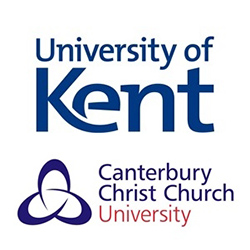Dr Tamara Rathcke, Lecturer in Linguistics in the Department of English Language & Linguistics, will be giving a talk entitled ‘’Then, What is Charisma? The Role of Audio-Visual Prosody in L1 and L2 Political Speeches’ at Canterbury Christ Church University today.
Charisma plays a significant role in political speeches, and determines the ability of a politician to carry an audience. While acoustic features of charisma have received some empirical attention, the contribution of visual prosody has been mostly neglected in studies focusing on features of a charismatic appearance. Unknown are also the audio-visual cues to charisma in non-native speakers. This small-scale study investigated speeches delivered by Donald Trump (L1 American English) and Arnold Schwarzenegger (L1 Austrian German, L2 American English). Video and audio recordings of their political speeches (around 25 min per speaker) and the transcripts were used. The use of pitch range, speech rate, emphatic stress and hand gestures was analysed. In order to establish the core means of the speakers’ persuasive influence on their audiences, within-speaker comparisons were conducted for phrases with and without cheering from the audiences. The results showed some differences in the use of the audio-visual prosodic features between the L1 and L2 speaker as well as some similarities, and suggest that charisma is not easily attributable to a fixed set of prosodic means but may be best understood as a skillful modulation of audio-visual prosody in social interaction.
The talk is part of the Discourse, Power, and Society Reading and Research Group, and interdisciplinary collaboration between the University of Kent and Canterbury Christ Church University (CCCU) for those who are interested in studying the expression/exertion of power and the manifestation of social dynamics through discourse.
The talk will be held at 4pm in Room NS1, 2nd Floor, Newton Building at CCCU’s Canterbury campus.
For details of the Discourse, Power, and Society Reading & Research Group, please see the dedicated blog here: http://blogs.kent.ac.uk/discourse-power-society/about/

